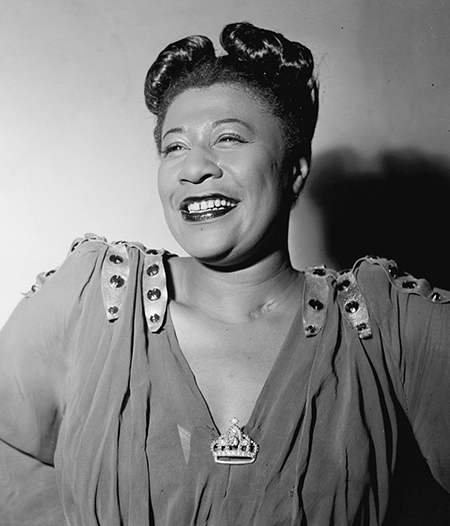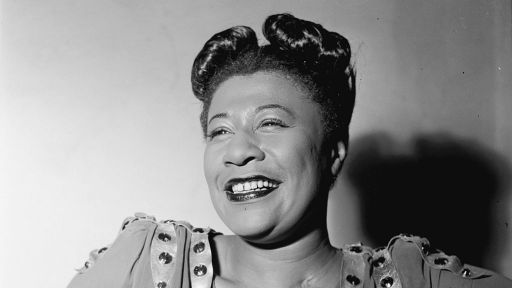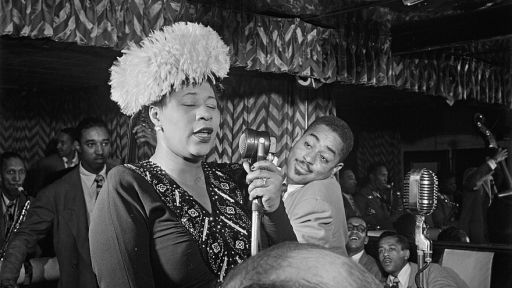[Editor’s Note: The following post is part of American Masters’ #InspiringWomanPBS campaign, which highlights the powerful, creative, and innovative women in our lives. Visit the Inspiring Woman page to join the campaign and submit the story of a woman who inspires you.]

In 1958, Ella Fitzgerald became the first Black woman to win a Grammy Award. The jazz singer would go on to rack up 12 more by the end of her legendary career, selling 40 million records and becoming one of the most iconic recording artists in history.
But before Fitzgerald earned her reputation as the First Lady of Song, she was a little girl in Yonkers, New York. Following her mother’s death, Fitzgerald became an orphan at the age of 15, and she was placed in the Colored Orphan Asylum in the Bronx.
What came next is something that Fitzgerald never discussed in public. Overcrowding at the orphanage led to Fitzgerald’s transfer to a reformatory school in Hudson, New York, an infamously abusive institution where she was denied permission to sing in the choir because of her race. Fitzgerald eventually escaped and scraped by on the streets of Harlem.
A fateful performance at the Apollo Theater’s amateur night set the homeless teen’s career in motion at the age of 17. Soon after winning the $25 grand prize, she met Chick Webb, a bandleader with whom she began performing at the Harlem Savoy Ballroom to great fanfare. Through perseverance and sheer talent, Fitzgerald worked her way to stardom.
Fitzgerald rarely spoke about her troubled teenage years, but her ability to survive the racist and abusive culture of the reformatory school stands as a testament to her fortitude. For more on this period of the jazz legend’s life, check out this fascinating American Masters podcast episode featuring New York Times journalist Nina Bernstein and Fitzgerald’s longtime friend June Norton. The two help uncover a part of the singer’s narrative that had remained a mystery to many.


